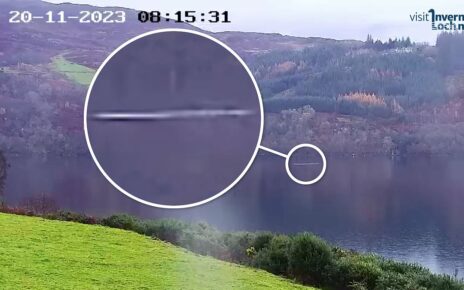Warning air passengers will face higher fares and longer journeys as aviation regulator increases air traffic control charges for airlines from £47 to £64 per flight – just weeks after IT meltdown left thousands stranded
- Monarch executive warned that passengers will ‘bear the brunt’ of the 43% rise
Flyers have been warned they will face higher fares and longer flights after the aviation regulator increased the amount airlines will have to pay to fly over the UK.
The charge will go from £47 to £64 per service unit, which is a measure of a flight’s distance and weight, for the period between 2023 and 2027, the Civil Aviation Authority said today.
It comes after an air traffic control failure caused widespread disruption this summer, with around 2,000 flights cancelled and passengers forced to sleep on airport floors while waiting for hours to get home.
Aviation executive and former managing director at Monarch Airlines Tim Jeans today warned that passengers will ‘bear the brunt’ of the 43% rise, which is expected to cost flyers around 43p to around £2.08 more per flight.
He added that some flights will also take longer as airlines re-route planes to minimise their distance travelled in UK airspace in favour of areas where charges are cheaper, such as Ireland.
Flyers have been warned they will face higher fares and longer flights after the aviation regulator increased the amount airlines will have to pay to fly over the UK. Pictured: Passengers waiting at Stansted Airport on August 29 after flights were delayed
It comes after an air traffic control failure caused widespread disruption this summer, with around 2,000 flights cancelled and passengers forced to sleep on airport floors while waiting for hours to get home. Pictured: Travellers whose flights were cancelled/delayed at Stansted Airport last month
The charges go towards funding the UK’s air traffic control system which is operated by National Air Traffic Services (NATS) . Pictured: NATS CEO Martin Rolfe
Mr Jeans told Radio 4’s Today Programme on Thursday: ‘Airlines will unfortunately be paying the price…and ultimately passengers of course.
‘Passengers will bear the brunt of this because airlines are not going to be able to swallow these increases and they will be passed on in the form of higher fares.’
He added some airlines could also change their routes to avoid UK airspace as much as they can, ultimately making them longer.
Mr Jeans said: ‘The en-route charges in Ireland are so much lower than the UK. So the longer routing will be taken but ultimately it’s cheaper for the airline and that’s what will happen despite the increase in fuel burn and the impact we know that has.’
The CAA said that when accounting for inflation since 2020, the rise is only 26% and the new charge is also lower than the average level between 2015 and 2019. It is also ‘broadly in line’ with European counterparts, it added.
The rise allows the company which runs the air traffic control systems, called Nerl, to recover the revenue that it lost during the Covid-19 pandemic. This recovery has been spread over 10 years.
CAA chief economist Andrew Walker said: ‘Our decision will provide the resources and investment required for Nerl to provide a resilient, high-quality service for passengers and modernise its services, while recovering costs from the pandemic, which is consistent with the traffic risk sharing arrangements in Nerl’s licence at the time.
The failures with the UK air traffic control system earlier in August caused widespread disruption to thousands of flights across the UK. Airlines to pay for passengers’ accommodation, and cancel around 2,000 flights.
Holidaymakers joined the long queues in the hope of getting checked in while waiting for their flights back in August
Mr Jeans said that the charges increase is going to ‘be very hard to swallow’ for UK airline companies and ‘will go down very badly I’m sure.’
He said: ‘Of course NATS is a monopoly so the airlines in the industry have absolutely no choice but to accept these charges.
‘And it looks to me as if the CAA have swallowed the NATS story basically saying that en-route charges have got to go up.
‘It was initially an increase of this size was to cover for Covid and the massive drop in air traffic during Covid but now the traffic has recovered to pretty much pre-Covid levels.
The boss of trade body Airlines UK Tim Alderslade hit out at the increase in charges which he said could mean higher prices for customers.
He said: ‘This is yet another kick in the teeth for passengers who have been plagued by issues this summer including the August Nats IT failure and will inevitably end up footing the bill of millions of pounds for increases that simply cannot be justified while it remains unclear what action will be taken to ensure airlines and their customers do not see a repeat of this disruption.
‘We also recognise the disruption caused by the technical issue in August and we will consider any further regulatory steps as appropriate following the outcome of the independent review.’
Source: Read Full Article






